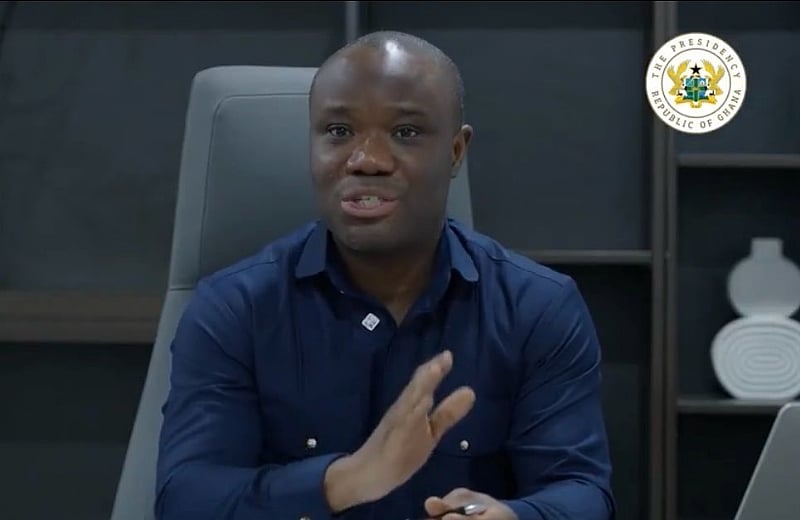The political landscape in Ghana has been recently marred by a resurgence of electoral violence, specifically during a partial rerun of the Ablekuma North parliamentary elections. This incident has sparked a heated exchange between the ruling National Democratic Congress (NDC) and the opposition New Patriotic Party (NPP), with each side accusing the other of instigating or condoning the violence. The NPP, whose members, voters, and affiliated journalists were among the victims of the attacks, has vehemently condemned the violence and demanded an immediate investigation into the matter. Their 2024 flagbearer, Dr. Mahamudu Bawumia, has called for swift arrests and prosecution of those responsible, many of whom were captured on video perpetrating the acts. Adding to the opposition’s demands, the NPP’s Minority caucus in Parliament has called for the dismissal of two government officials, Malik Basintale and Dr. Hannah Louisa Bissiw, accusing them of justifying the violence.
However, Felix Kwakye Ofosu, the Minister of State for Government Communications and NDC MP for Abura Asebu-Kwamankese, has countered the NPP’s accusations, arguing that the opposition party lacks the moral standing to demand an investigation into electoral violence. He contends that the NPP has a history of endorsing and even inciting violence during elections, citing instances where leading NPP figures allegedly justified or downplayed such actions. Kwakye Ofosu’s central argument rests on the principle that those who condemn violence consistently have the moral authority to demand investigations and action, while those who have condoned or promoted it in the past forfeit that right. This stance essentially frames the debate as a matter of credibility and consistency, questioning the NPP’s sincerity in its current condemnation of the Ablekuma North violence.
Kwakye Ofosu further substantiated his claims by referencing specific incidents involving NPP leaders, particularly former President Nana Addo Dankwa Akufo-Addo. He alleged that Akufo-Addo, during his time as a presidential candidate, had openly praised the use of violence as a political tool, thereby undermining the NPP’s current position against electoral violence. He also pointed to alleged threats of violence made by NPP officials in the lead-up to the Akwatia by-election, further bolstering his argument that the party has a documented history of condoning or even encouraging such behavior. By highlighting these past incidents, Kwakye Ofosu seeks to portray the NPP’s calls for investigation and accountability as hypocritical and opportunistic.
The clash between the NDC and NPP over the Ablekuma North violence underscores a deeper concern about the recurring nature of electoral violence in Ghana’s political landscape. This cycle of violence, often accompanied by accusations and counter-accusations, raises questions about the commitment of political parties to peaceful and democratic processes. The conflicting narratives presented by both sides highlight the challenges in establishing accountability and ensuring justice for victims of electoral violence. The public exchange of accusations also serves as a reminder of the deep-seated political polarization that can fuel such incidents.
The demand for the dismissal of Malik Basintale and Dr. Hannah Louisa Bissiw further complicates the matter, introducing another layer of political maneuvering within the larger debate on electoral violence. The NPP’s insistence on their dismissal suggests a belief that these officials played a role in instigating or condoning the violence, while the NDC’s resistance to this demand can be interpreted as a defensive maneuver to protect its own members. This focus on individual actors also potentially distracts from the broader issue of systemic violence and the need for comprehensive reforms to address the root causes of electoral conflict.
Ultimately, the Ablekuma North incident serves as a microcosm of the broader challenges facing Ghana’s democracy. The escalating political rhetoric, coupled with the recurring incidents of violence, threatens to undermine the integrity of the electoral process and erode public trust in political institutions. Addressing this issue requires a concerted effort from all political stakeholders to prioritize peaceful and democratic practices, condemn violence unequivocally, and hold perpetrators accountable, regardless of their political affiliation. The current impasse between the NDC and NPP underscores the urgent need for a national dialogue on electoral violence, aimed at establishing common ground and developing strategies to prevent future occurrences. This dialogue must address the underlying issues that fuel electoral conflict, including political polarization, inflammatory rhetoric, and the perception of impunity for perpetrators of violence.


